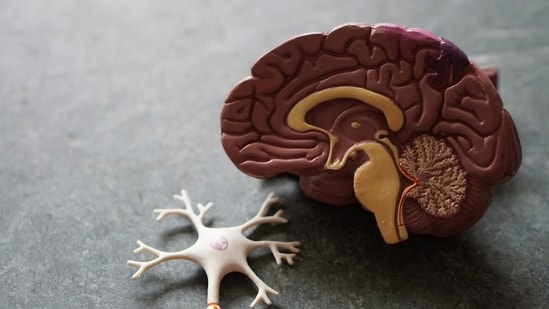In a fast-paced world where fatigue and stress are often dismissed as part of daily life, subtle changes in our body are easy to overlook. Yet, according to a recent article by The Times of India titled “Nervous system disorder: Hands shaking, slurred speech and other warning signs that you should not ignore,” medical experts are now urging people to pay closer attention to the early whispers of their nervous system — because those “small” signs may be the body’s first cry for help.
The Silent Messenger of Your Health
The human nervous system — a complex network connecting the brain, spinal cord, and nerves — controls everything from muscle movement to memory. When something begins to malfunction, it rarely happens overnight. Experts emphasize that the nervous system often gives subtle early signals long before a full-blown disorder develops. Ignoring them, they warn, can lead to irreversible complications.
Five Crucial Symptoms You Should Never Overlook
Doctors highlight five key warning signs that demand attention, not avoidance:
1. Resting tremor, stiffness, or slowed movements: These may indicate the early stages of Parkinson’s disease, a degenerative neurological condition that affects movement and coordination.
2. Action tremor during voluntary movement: If your hands shake while you perform simple tasks like writing or drinking water, it could be essential tremor, a condition distinct from Parkinson’s but still concerning.
3. Progressive memory loss and confusion: These subtle cognitive changes are red flags for dementia-related disorders such as Alzheimer’s disease.
4. Sudden weakness on one side of the body, slurred speech, or facial drooping: Such symptoms are medical emergencies and could signal a stroke.
5. Unexplained seizures or jerking movements: These may point to epilepsy or other serious neurological dysfunctions that require immediate evaluation.

Why Early Detection Changes Everything
Neurologists stress that early recognition of these symptoms can transform outcomes. Many neurological disorders progress silently; however, timely diagnosis and intervention can slow or even halt their progression. For example, early Parkinson’s patients often benefit from medication and therapy that preserve motor function, while prompt stroke treatment within the first few hours can save brain cells and prevent permanent disability.
Experts advise that no symptom should be dismissed as “normal aging” or fatigue — especially if it persists or worsens. Even mild tremors or forgetfulness deserve medical evaluation.
What You Can Do Right Now
If you notice any of the above signs, don’t delay seeking help. Book an appointment with your physician or a neurologist. Keep a daily symptom journal to note when issues began, how they’ve changed, and what might trigger them.
In cases of stroke-like symptoms — face drooping, arm weakness, speech difficulty — remember the FAST rule and call emergency services immediately. Every minute matters.
Additionally, your doctor may recommend advanced tests such as MRI, CT scans, or EEGs to pinpoint the cause.
Listening to Your Body is the First Step to Healing
The message from doctors is clear — our body often speaks in whispers before it screams. Recognizing these warning signs early can mean the difference between manageable treatment and irreversible damage.
So, the next time your hands tremble, words slur, or memory fades for no clear reason — don’t brush it off. Your nervous system might be speaking first — make sure you’re listening.


